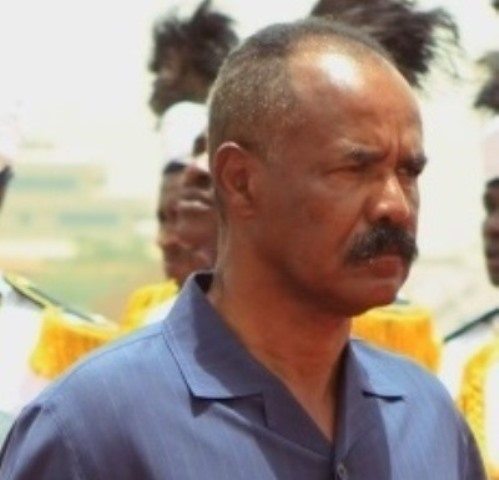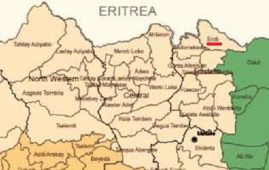The ballot count in Kenya’s presidential elections has been rigged, says the running mate of Prime Minister Raila Odinga, who is trailing behind his rival, Uhuru Kenyatta.
"We have evidence the results we have received have been doctored," said Mr Odinga’s running mate Kalonzo Musyoka.
He said the vote count should be stopped but added that his comments were not a call for protest.
Counting has been severely delayed after the electronic system crashed.
The Independent Electoral and Boundaries Commission (IEBC) has been holding closed-door meetings and its chairman is due to address journalists later on Thursday, reports BBC Swahili’s Idris Situma.
Meanwhile, the IEBC’s Liliane Mahiri Zaja, told the BBC that no written complaint had so far been received about the way the votes were being counted.
More than 1,000 people were killed in the violence which broke out in 2007-08 after Mr Odinga claimed he had been cheated of victory by supporters of President Mwai Kibaki.
Mr Kibaki is stepping down after two terms in office.
Mr Kenyatta, who backed Mr Kibaki, is due to stand trial at the International Criminal Court (ICC) next month, accused of organising attacks on members of ethnic groups seen as supporters of Mr Odinga. He denies the charges.
Fall in rejected ballots
Mr Musyoka said the failure of the electronic voting system earlier this week had allowed results to be rigged.
"We as a coalition take the position the national vote-tallying process lacks integrity and has to be stopped and re-started using primary documents from the polling stations," he said on Thursday.
But Mr Musyoka also called on Kenyans to remain calm, saying, "We are committed as a coalition to the principle of the rule of law."
Meanwhile, senior members of Mr Odinga’s coalition have given the BBC further details about their allegations, saying that the number of ballots counted exceeded that of votes cast at some polling stations.
Mr Kenyatta’s Jubilee coalition has rejected the accusations.
"It’s unfortunate that Odinga feels the need to try and halt the count," a spokesman for Mr Kenyatta said.
"We believe the people of Kenya have waited patiently for the results of this general election. We urge international observers – if they hold sway with Mr Odinga – to encourage him to allow the process of democracy to take its course".
The long delays and these new accusations are increasing the tension, the BBC’s James Copnall reports from the capital, Nairobi.
However, until they see comprehensive evidence, many Kenyans will remain sceptical, our correspondent says.
On Wednesday, the head of the EU observer mission, Alojz Peterle, said Kenya had so far demonstrated "an impressive commitment to democratic elections".
But the African Union Election Observation Mission expressed concern over the high level of rejected ballots, which may have resulted from "inadequate voter education" in the run-up to the elections.
Kenyatta in the lead
Following glitches with hi-tech voting and counting systems, the vote-tallying process was started again from scratch, and by hand, on Wednesday.
Results were only being announced after the ballots had been physically delivered to election headquarters in Nairobi, rather than being filed electronically.
Latest figures show Mr Kenyatta has maintained his lead over Mr Odinga, with 2.7m votes to 2m at 13:00GMT (16:00 Nairobi time) on Thursday. This is in line with the original count.
However, the new tally shows that the number of rejected ballots, which have become a major bone of contention, has fallen sharply.
In the initial count, some 300,000 votes – about 6% – were disqualified for various reasons.
According to latest official results, this figure has now come down to about 40,000. While the reason for the drop remains unclear, some observers said that election officials were being too strict first time round.
The Jubilee coalition has rejected calls for some of these ballots to be included, as requested by Mr Odinga’s allies.
Counting the rejected votes would greatly add to the number needed for a candidate to break the 50% threshold for a first-round win and increase the prospect of a runoff due within a month.
The push for these ballots to be included was motivated by a "sinister and suspect logic", said Charity Ngilu, a senior member of Mr Kenyatta’s coalition.
Jubilee accused the British High Commissioner in Kenya of "canvassing to have rejected votes tallied", an accusation the UK Foreign Office described as " entirely false and misleading”.
The winning candidate must get more than 50% of the total votes cast and at least 25% of votes in half of the 47 counties. The latter was a requirement introduced in the new constitution to make sure the new president wins with wide support, rather than only with the backing of voters in his regional and ethnic strongholds.
If there is no clear winner, a second round of voting will take place, probably on 11 April.
*************
Source: BBC, march 7, 2013 – Kenya election: Raila Odinga camp says vote ‘doctored’
Check the archives for related posts.





